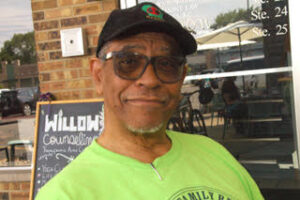Bill Franks’ Take on Martin Luther King, Jr. – MLK Day
When my now adult son was in Middle School in Waunakee Wisconsin,(where we live) I gave talks at the School on the significance of the Martin Luther King, Jr. Holiday. The Waunakee Community is, like most communities in Wisconsin, an extremely melanin deficient community for Black Kids to receive education. It also is one of the highest rated School Districts in the State when it comes to the quality of its educational instruction, the quality of its Educational Professionals (including Teachers) and the intelligence and Curricular Policies of its School Board. A recent example of this is the selection of a Black Woman to replace the outgoing District Superintendent. My son graduated from the District more than 30 years ago and my Grandson is now a Freshman at the same High School.
My talk focused on the significance of the Reverend’s mission and messages at the Middle School. Simply reciting a list of accomplishments rather trivialized (so I thought), the learning process. Why not stimulate the conceptual and intellectual appreciation of these kids for the subject matter. I also surmised that these youngsters had likely never seen or heard anyone like me. So, I contrasted Dr. King to another iconic Black figure, El Haj Malik Shabazz (Malcolm Little, aka, Malcolm X). I wanted kids to understand that the reasons we didn’t honor or even know about Malcolm X, like we did Dr. King. Many iconic names most students haven’t heard nor will probably ever know about were not written into the standard texts these kids used. Most I didn’t know about until I was an adult unless I researched them or learned from with noted experts.
I am close to that generation, chronologically. Quite a generation it was. Defacto and Dejure Segregation was the order of the day. My brothers, my friends and I didn’t go to school with White kids until Middle and High School. We “integrated” the schools in Wilmington, North Carolina (the site of the only successful coup d’é·tat in United States).
Doctor King, Jr.’s story is fascinating in its own right. My Cousin, the Reverend H. Lionel Edmonds, has Pastored at the Mount Lebanon Baptist Church in Washington, D.C. for almost 30 years. Whenever, I have questions on religious matters, I confer with the good Reverend. He made some remarks about the Reverend, Dr. King, Jr. in one of this recent sermons. He said, Dr. King always carried two books with him, wherever he traveled. One was the Bible and the other was Jesus and the Disinherited (Backs Against The Wall: The Howard Thurman Story). His shocking book gave an “African-ity” to the life of Jesus. Thurman criticized Christianity for its part in the Nation’s deep racial divides. In Thurman’s own words, “I would have to find out, what was the word that the religion of Jesus have to say to the man with his back against the wall.”
Segregation gives rise to an immoral exercise of power of the strong over the weak. If one reflects on the Life and Ministry of Doctor King, Jr,, it is clear that Thurman influenced him. KIng’s adoption of Non-Violence as a mantra, was likely based on Thurman’s encounter with Mahatma Ghandi in the 1930’s. After King’s death, the Reverend Jesse Jackson was asked, in an interview whether he believed that taking up the gun was the way to go. He responded, in effect, that taking up the gun is impractical and it lacks redemption.
The Economic Opportunity Act of 1964 and President Johnson’s War on Poverty complemented these civil rights milestones by attacking the economic inequalities that had so long accompanied racial discrimination and exclusion. King quickly discovered that the challenges associated with obtaining equal treatment were daunting. Dick Gregory once opined that, “… California was nothing but Mississippi with Palm Trees.” Perhaps the greatest challenge to King’s leadership before his death was after the most climactic triumph, the passage of the Civil Rights Act of 1964 especially its eleven Titles which set forth the specifics of implementation. As Dr. King developed a strategy to take on discrimination in the (thought to be liberal) North (of the Mason-Dixon line) he focused on issues such as housing segregation, redlining and such. In a sense, the Civil Rights Movement set in motion a series of repercussions that have had national and International implications.
Dr. King and these modern founders did just what the original founders did – confronted systems of subjugation and hierarchy like those presented by the British Monarchy. By now we’ve established that Dr. King was one of a long line of leaders, many unnamed, who advanced the human rights agenda that transcends any particular period of time in history.
Beyond the “I have a dream” speech, which most Americans have heard, it is beneficial to remember the circumstances under which he was assassinated. He gave his life in an effort to support the Sanitation Workers attempting to organize in Memphis, Tennessee. Those workers ultimately succeeded, but the cost in hardships endured and lives lost was considerable.
Thus, once the struggle turned from the public accommodations and voting rights and shifted to economic equality, that’s when his message was dangerous enough to literally get him killed. If there is any lesson to be learned for these examples, it’s that freedom is never free.

